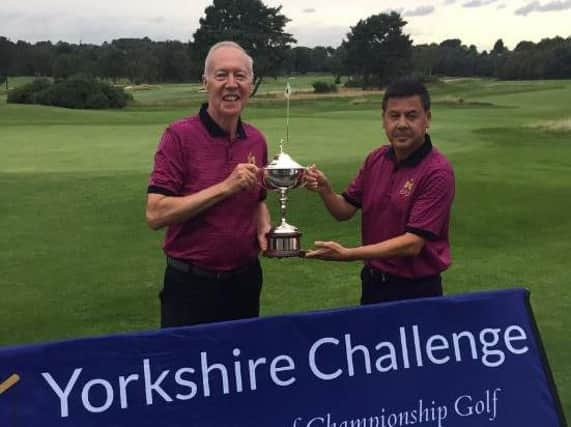Yorkshire Challenge: Knaresborough duo come out on top after three-day Ryder Cup battle


An excellent outward nine at Moortown in the last of three rounds put them in the box seat and allowed them to overcome a back-nine slide, when they had four one-pointers on the card.
Their 122 aggregate after playing a round at each of Yorkshire’s Ryder Cup venues – Ganton, Moortown and Lindrick – earned them a one-point triumph.
Advertisement
Hide AdAdvertisement
Hide AdKenilworth duo James and Will Lamond were the top scorers at Moortown on the final day with 44pts, but were unable to make up a six-point overnight deficit on the eventual champions and placed second.
Walsh and Young came in with 46 at Lindrick, 37 at Ganton and 39 at Moortown, the runners-up scoring 40 37 44 respectively.
Walsh and Young thus ensured the title stays in Yorkshire hands as they succeeded Howley Hall’s Martin Barber and Brian Hill.
This is the fourth annual staging of the ever-more popular trilateral pairs event, which sees pairs compete in three divisions – each named after the course on which they began their pursuit of overall as well as divisional glory.
Advertisement
Hide AdAdvertisement
Hide AdWalsh and Young were the Lindrick Division winners, while Burton on Trent’s John Drake and Matthew Whyman – who placed third overall with 40 36 42 for 118 – were triumphant in the Ganton Division.
Stapleford Park’s Ben Cooper and Peter Killeen took the Moortown Division honours with 116 (39 41 36).
Lindrick’s Gary Boon and James Fores made the most of playing their home course to post the best score there of 44pts on the final day, while at Ganton the final day’s top tally of 39pts was compiled by Howley Hall’s Glenn Arnison and Martin Smith.
But they needed count back to get the better of two other pairs on the same total.